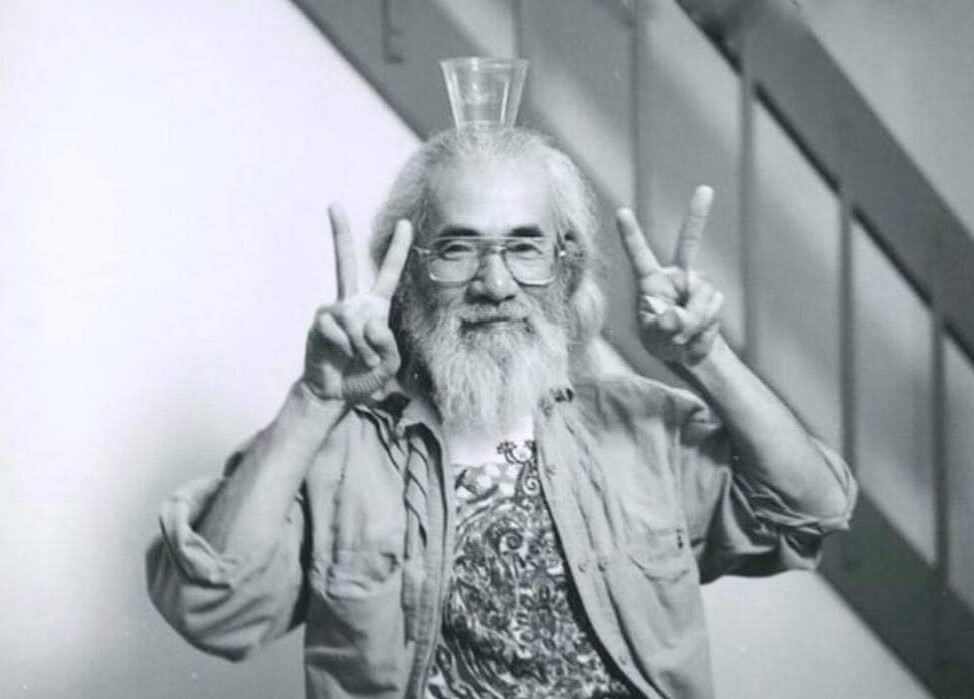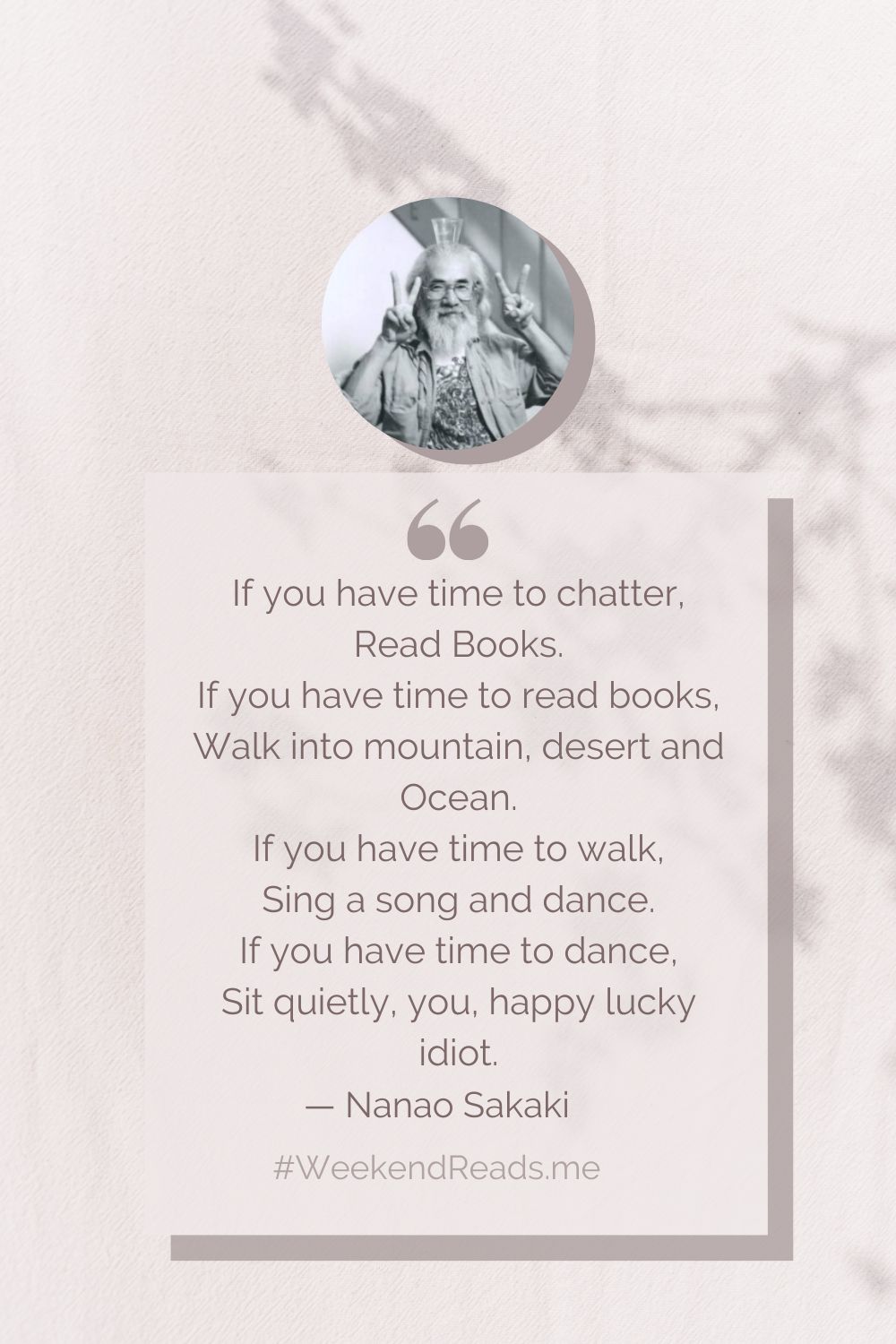Nanao Sakaki (1923–2008) was a Japanese poet who found himself loving and living around nature and writing about it. The aim of Sakaki was to give a positive message to the world: deserts, oceans, mountains, and forests are so beautiful that people should nurture them.
His poetry speaks about what he wanted to say about the nature of the mother earth, ocean, trees, and birds. These are the base of existence of mankind.

Nanao Sakaki awaken modern culture to the ancient ecosystem
The poetic senses of Nanao awaken modern culture to the ancient ecosystem, and in this life, humans should enjoy it.
His one of the best poems from his book How to Live On The Planet Earth that makes people fall in love for reading not ardent way, but conveniences through his poetry.
These emotions could only be brought about by the soul of a happy wanderer, and this is completely true. In the first line, the poet urges someone who does not read books to do so. The way he wrote in such a rhythm that mankind would easily think further and take the idle soul a step further to hold a type of book for which you had never set a genre to read before. There is no doubt that reading forms love for the things around you and brings harmony to life.
The book we set out to read is the actual product of the writer's thoughts over many months and years and the reader acquires that knowledge in just a few days.
The joyous heart then starts singing, dancing, and the poet Sakaki says at the end of the poem, “Sit at home” like any other soul with a content heart.
Nanao Sakaki poems “How to Live On The Planet Earth”
If you have time to chatter,
Nanao Sakaki
Read Books.
If you have time to read books,
Walk into the mountains, desert, and ocean.
If you have time to walk,
Sing a song and dance.
If you have time to dance,
Sit quietly, you, happy lucky idiot.
Other poetry of Nanao Sakaki (check out) also talks about another similar relation between the nature and human.
Soil for legs
Nanao Sakaki
Axe for hands
Flower for eyes
Bird for ears
Mushroom for nose
Smile for mouth
Song for lungs
Sweat for skin
Wind for mind.
Nanao Sakaki relationship with Jungle
In the middle of his life, his relationship with Japan's forest had been long enough; he had spent nearly three years there. He was in the jungle, walking through sometimes narrow or wide, slippery footpaths or roads. Nanao Sakaki walked enough to get his legs dirty, as he mentioned in his poems, with an axe in his hands (to defend or make a way in a crowd of dark wood). He observed wild flowers rather than the crowded roads of urban life. Nanao, while singing a song and oozing enough sweat for skin to get a bath, ultimately gets a cold wind for a fresh mind.
Beauty of Mother Earth in Nanao Sakaki poems
He explored the beauty of Mother Earth not only in his homeland but also in other countries too. During the three years, he wrote many poems, thanks to his creative soul, wrote down his feelings for nature in his verses.
Nature consciousness in urban culture in Nanao Sakaki poems
Sakaki's goal with his purposeful approach to the ecosystem was to instill a sense of nature consciousness in urban culture. His books brilliantly captured his joyful feelings of living in the dark woods and the quietness of the jungle at night.
In those active years of his life in the forest, he reached out to The Tribe and helped them build Banyan Ashram.
His friend Gary Snyder on his death on 21 Dec 2008 (Nanao Sakaki had completed 86 years) wrote,
“Last night I got word from Japan that Nanao Sakaki had suddenly died. He was living with friends in the mountains of Nagano Prefecture in a little cabin. He had stepped out of the door in the middle of the night to stargaze or pee and apparently had a severe heart attack. His friends found him on the ground the next morning. Christmas afternoon they’ll hold the otsuya (wake ceremony) and intimate friends drinking party in his room siting with his body and cremation after that. "He was one of my best friends in this lifetime.”
He has been called the “Godfather of Japanese hippies” and “Japan's first deadhead. As a Nanao’s friend, Gary Snyder writes in the forward to his book How to Live On The Planet Earth “developed a grand sense of nature, dissected the workings of social systems, and kept a steady focus on craft and art.” His collection of eco-poetry made him a formidable pet in Japan.




